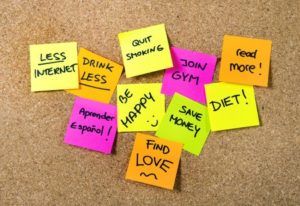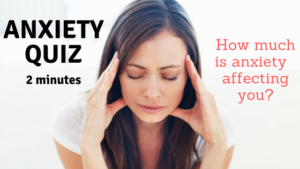 While your friends and family are resolving to cook more dinners at home; to lose 50 pounds; to travel more; or to check seeing Tom Petty in concert off the old bucket list, but you’re starting smaller: with yourself. You’ve decided the year 2017 is the year of you.
While your friends and family are resolving to cook more dinners at home; to lose 50 pounds; to travel more; or to check seeing Tom Petty in concert off the old bucket list, but you’re starting smaller: with yourself. You’ve decided the year 2017 is the year of you.
2017 is the year you have chosen to make your mental health your priority.
Your mental health affects how you think, how you feel, and how you act every day, in every situation. Your mental health affects the way you perceive yourself and how your friends, loved ones, and strangers perceive you too. Your New Year’s resolution for 2017 is to become a better — nay, the best version of yourself by improving your mental health.
Meditate.
The practice of meditation has been shown to offer a variety of health benefits, including improved sleep and decreased anxiety. But it is a practice. To reap the rewards — even and especially when the status quo is ‘busy’ — set aside ten minutes per day to quiet the noise. Take a few moments to reflect on the day; express gratitude for the blessings in your life, and focus on becoming fully present.
Commit to regular exercise.
Exercise is great not only because it releases endorphins in your brain that make you a happier version of yourself, but it helps you work toward that other goal of losing weight. Even better, when the weather is nice, get outside. Research has suggested that walking outdoors surrounded by nature has even more mood-boosting power.
Find your tribe.
Winter is cold and it’s dreary, and for those who struggle with Seasonal Affective Disorder (SAD) it’s even worse, but getting out of the house — social connection and bonding are imperative to mental health, so go on. Get out of the house and do something fun; make new friends. Go to the beach, or schedule a car service for a night on the town. It’ll be worth it.
Eat well.
Healthy eating leads to healthy bodies and healthy minds. Strive to incorporate many different types of fruits and vegetables in your diet, and other tasty brain boosting foods like walnuts. Don’t skip meals, and stay hydrated, and you’ll be well on the path to prioritizing your health and mental well being all year long.
Schedule an appointment with your Washington DC psychotherapist.
The wisdom and guidance of a professional psychotherapist in Washington DC can help you onto a path of self-discovery, and toward more effective methods of dealing with depression, stress, anxiety, and every day life.
Contact Keith Miller Counseling & Associates to discuss how psychotherapy in Washington DC can help you achieve your goal of a happier, healthier you in 2017.
Call 202-629-1949


 Do you struggle with social anxiety?
Do you struggle with social anxiety?
 There’s no better way to
There’s no better way to 
 When someone mentions ‘the city that never sleeps’, you think of New York City, right? Of course you do. A nickname coined, and made famous by the Martin Scorsese film New York, New York (and with a little help from Frank Sinatra), it’s one that could just as easily be used to describe, well, the world these days. Everywhere I turn, there are lights flashing, and sounds sounding; and everyone is rushing.
When someone mentions ‘the city that never sleeps’, you think of New York City, right? Of course you do. A nickname coined, and made famous by the Martin Scorsese film New York, New York (and with a little help from Frank Sinatra), it’s one that could just as easily be used to describe, well, the world these days. Everywhere I turn, there are lights flashing, and sounds sounding; and everyone is rushing.